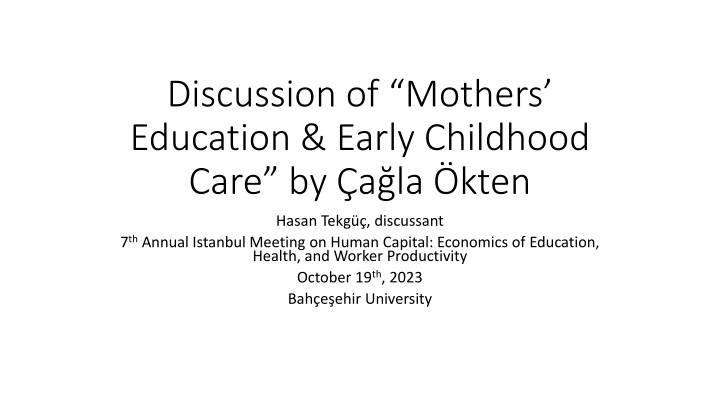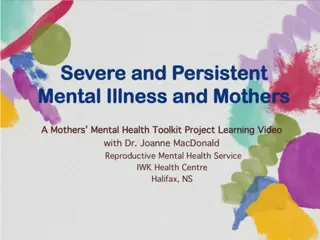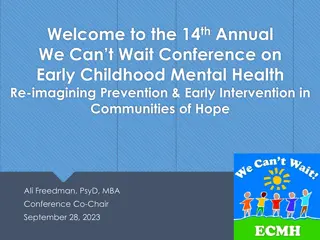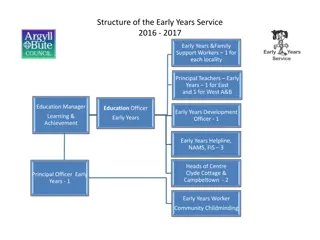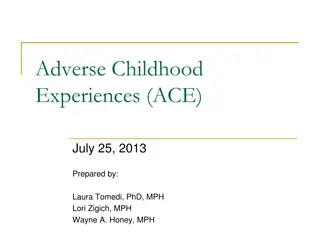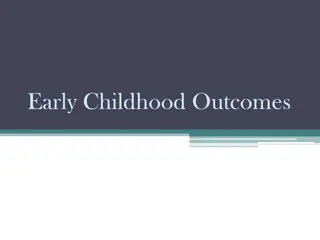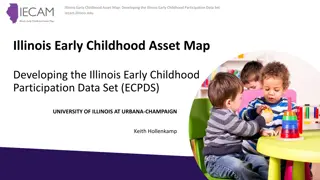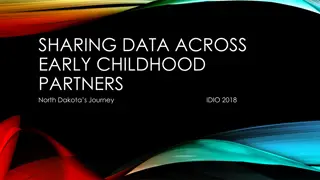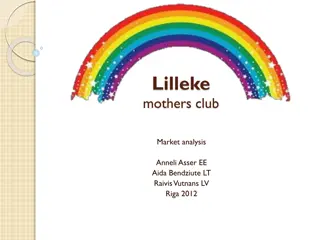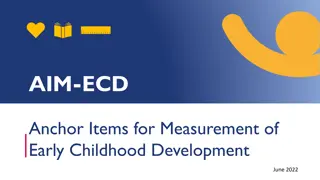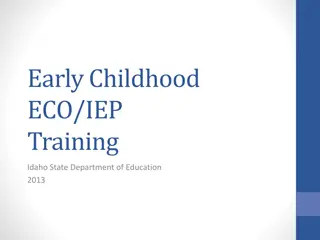Importance of Mothers in Early Childhood Education
Mothers play a crucial role in early childhood education, especially in developing countries where many children lack access to formal education. Studies show a strong link between a mother's education level and the time she invests in her child's learning. By examining a 1997 education reform, researchers are able to establish a causal relationship between a mother's education and the time spent on early childhood care. The empirical analysis includes detailed tables and analysis to support this connection and highlight the long-term benefits of early education on educational and labor market outcomes.
Download Presentation

Please find below an Image/Link to download the presentation.
The content on the website is provided AS IS for your information and personal use only. It may not be sold, licensed, or shared on other websites without obtaining consent from the author.If you encounter any issues during the download, it is possible that the publisher has removed the file from their server.
You are allowed to download the files provided on this website for personal or commercial use, subject to the condition that they are used lawfully. All files are the property of their respective owners.
The content on the website is provided AS IS for your information and personal use only. It may not be sold, licensed, or shared on other websites without obtaining consent from the author.
E N D
Presentation Transcript
Discussion of Mothers Education & Early Childhood Care by a la kten Hasan Tekg , discussant 7thAnnual Istanbul Meeting on Human Capital: Economics of Education, Health, and Worker Productivity October 19th, 2023 Bah e ehir University
Why does mothers matter for early childhood educ. care? Early childhood education long term benefit for educational & labor market outcomes However, 78% of developing country children are not enrolled in pre- primary education. Hence their early education is in the hands of their primary caregivers: mothers Existing studies report association btw mothers education level and parental time investment in children. Existing literature likely suffers from omitted variable bias. Unobservable individual factors (such as intelligence) and unobservable family characteristics (social norms etc.) affect both mother s education and CC behavior.
Papers contribution Use 1997 education reform to establish whether causal relationship exists btw mother s education and time spent in early childhood care (especially education related) Time use survey 2014-15 which has more detailed questions and continuous data (intensive margin) instead of binary answers in TDHS. Time spent in playing games with children, reading and talking to children Time spent in educational activities accompanied by children Intend-to-treat regression instead of IV b/c of failure of exclusion criteria reform increased the probability of marrying more educated men. Mothers age in years instead of months. Birth months are bunched at January
Well-done empirical part Table 1: whole, treatment, and control samples separately Table 2: Test sample selection and fertility to establish that control variables are not confounders Table 3: Establish that reform impacted educational outcomes All main analysis with alternative bandwidths Reproduce OLS results parallel to existing studies: Table B.8 Reconciliation with Usta (2020): Table B.12
Critique 1: Why do you trust pediatricians and child development experts more than sociologists? Authors rightly suspect that parental education & child lit from sociology and social psychology is riven with omitted variable bias. But authors construct their main dependent variable based on pediatricians and child development expert advise. Time spent in playing games with children, reading and talking to children Reading to children labor market outcome 20 years later? is exactly the kind of question you do NOT trust practicing experts Their data are convenience samples and anecdotes. They have no "skin-in-the-game" Child development lit: Blaming mothers industrial complex Can you test children's independent play-time?
Critique 2: Clustering of standard errors Mothers sample is only 606 observations in 6 year bandwidth. P11: standard errors are clustered at the region by birth cohort level. We also implement an alternative method for correcting standard errors. We estimate the p-values using wild cluster bootstrap as clustering standard errors at birth cohort results in 12 clusters that may not be large enough to get an accurate inference. The results for which we cluster standard errors at birth cohort level also confirm our main findings. region-by-time clustered standard errors for testing purposes leads to over- rejection of the null hypothesis b/c of serial correlation (Bertrand, Duflo, and Mullainathan 2004). "Furthermore, the clustering should be on state, assuming error independence across states. The clustering should not be on state-year pairs since, for example, the error for California in 2010 is likely to be correlated with the error for California in 2009." Cameron & Miller (JHR, 2015)
Suggestions Intent to treat instead of IV in Introduction (par. 4): not clear Employment or wage employment? not clear in the paper Table 1 Labor Market outcomes: weekly hours worked is misleading Table B5: can be in the main results, as panel B in Table 4. Most children still not in school by age 4. Table B9 (accompanied by children): can be in the main results It is the alternative definition Table B.9 C7: 520 minutes?? Table B.7 C2: effect size is large (134 minutes) even if insignificant
Thanks for listening Hasan.tekguc@khas.edu.tr
